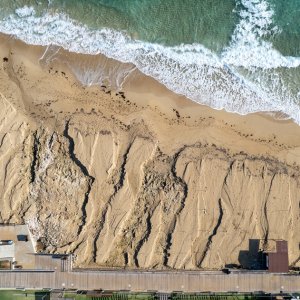
Mining’s Commitment with the Environment
 By Alejandro Ehrenberg | Journalist and Industry Analyst -
Sat, 07/11/2020 - 12:33
By Alejandro Ehrenberg | Journalist and Industry Analyst -
Sat, 07/11/2020 - 12:33
The transition to a low-carbon economy is mining-intensive. However, Julio Trujillo, Deputy Minister of Environmental Regulations at SEMARNAT, pointed out that the industry’s paradigms must change to take full advantage of the opportunity the transition presents. “Sustainable development must be prioritized over extractive efficiency,” said Trujillo as moderator of the second panel of the webinar Mining’s New Normal: Reactivating the Industry.
To celebrate Miner’s Day 2020, Mexico’s Undersecretariat of Mining, in collaboration with Mexico Business News and Mexico Mining Review, held a top-level digital conference where industry leaders shared ideas on mining’s post-pandemic role in Mexico’s development. The second panel of the day titled Mining’s Commitment to the Environment was inaugurated by Sonora Governor Claudia Pavlovlich. Governor Pavovlich highlighted that mining has been historically central to Sonora’s development. She also stated that expenses during the exploration phase should be made tax deductible in Mexico and that the Mining Fund should be reoriented to its original goal of boosting the development of mining-oriented municipalities. She concluded by saying that the mining industry’s protocols for safeguarding the environment and workers’ safety are an example for other industrial sectors.
Undersecretary of Mining Francisco Quiroga, the event’s main moderator, stated that the mining sector has made commitments with Mexico’s Ministry of Environment and Natural Resources (SEMARNAT) to act responsibly toward the natural environment. Commitments include carrying out mine closures and reclamations that restore, or even improve, the environment to its original state before mining activities took place.
Katya Puga, consultant at I+D+P Investigación, Desarrollo y Participación Consultoría, was in charge of the panel’s first presentation. Puga explained that if the industry’s recovery from the pandemic is to be transformative, mining has to strengthen its commitment to the environment and to strive to get all stakeholders on board. She stressed that there is still a lot of room for further reducing CO2 emissions in accordance with the Paris Agreement. Also, she said that social costs of mining activities must be equally distributed. Finally, she remarked that Mexico needs to abide by international treaties such as the Escazu Agreement. “Business as usual will not do in the post-pandemic world,” Puga cautioned.
Luis Vera, Mexico Representative for the Science and Technology for Development Program, pointed out that a new axiological framework is needed for maximizing mining’s contributions to Mexico’s sustainable development. “Development only makes sense if it works for human beings. A new social and environmental mapping is needed to strengthen synergies,” he said.
Carlos Toledo, Member of the Board at CEIBA, followed up on Vera’s presentation by underscoring the mining industry’s responsibility with biodiversity. Open-pit mining is intensely disruptive for ecosystems, he said. “The industry and authorities must develop joint frameworks to transition to another extractive model and to minimize the impacts of open-pit mining when used,” Toledo said.
Eugenio Barrios, Mexico’s Deputy Director of Water Management, stressed during his presentation water’s importance to achieving a social license to operate. He said that miners can be key in generating knowledge of Mexico’s hydric resources. Also, the industry is in a position to lead responsible water use in the communities where it operates. “Steps have already been taken. For example, we have worked with Minera Peñasquito to study aquifers and achieve a better use of water reserves,” he noted.
The panel’s last presentation was delivered by Jesús Dorantes, President of Academia de Impacto Ambiental’s technical council. He pointed out that miners in Mexico are subject to very strict regulations, as financing for their projects is acquired internationally under rigorous environmental criteria. “There are just 1,558 mines in operation in Mexico (in 2018). It is an activity that can be developed further to Mexico’s benefit,” he concluded.
















